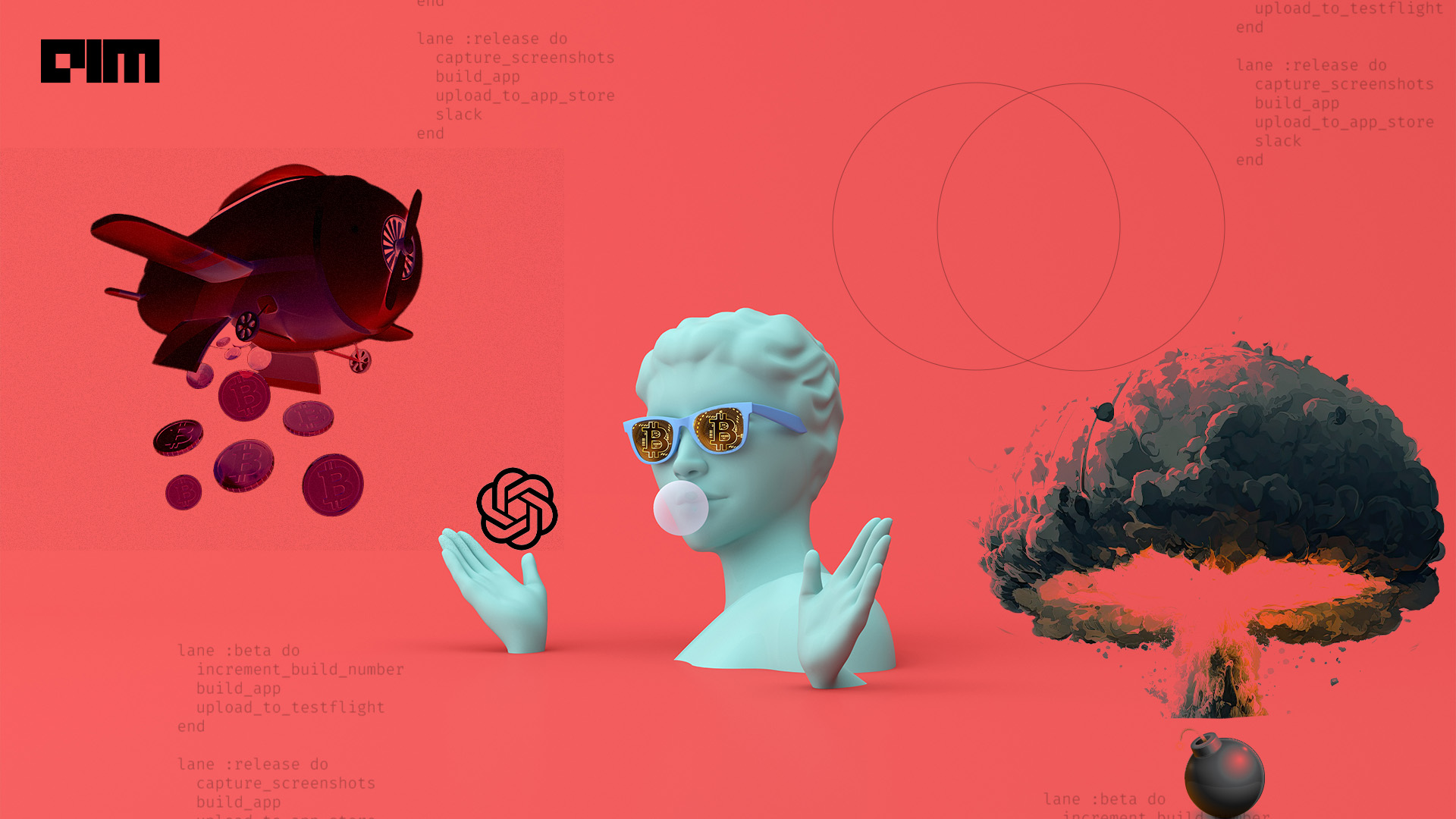
Last week, Bank of America’s chief investment strategist Michael Hartnett warned us of a looming AI bubble. AI is this year’s investment craze and even though the profit potential is huge, this period could go the messy dot-com burst way, stated the Bank of America representative.
On the other hand, Dave Rogers, ex-CTO of UK Ministry of Justice and the author of ‘The False Promises of Technology’ believes “generative AI has the potential for widespread and significant impact –- considerably more than the recent hyped technologies such as blockchain and web3.”
For the past decade, such warnings have repeatedly ripened in the startup land. The industry might be in another bubble, as commentators caution a dramatic collapse. Previously, jobs disappeared, fortunes vaporised, and reputations were tarnished as the technology bubble popped. Last year, crypto and Sam-Bankman Fried faced a similar fate. The scars are fresh, but even today more money is being pumped into start-ups. But instead of collapsing, things keep getting bubblier in tech.
“However, at this stage it’s still unclear who the winners and losers will be in the commercial market. It’s not even clear if the technology itself will be the centre of market impact, which is likely to be felt far beyond the tech industry (eg disrupting academia, journalism, legal professions etc). There’s a dominant narrative around automation and productivity, but I think the impact will be far more chaotic. Attempts at automation will cause systems to adapt, for e.g., if you try and automate writing commercial bids with AI, it will have wider system impacts on procurement. Regulation from the government will also play a key role, but likely a reactive one when the harms or benefits of generative AI become clearer,” he added.
Ghosts of the past
The dot-com tech bubble, similar to most historical bubbles, eventually met its demise with a crash as investors realised that their lofty expectations would not be fulfilled and hastily exited their positions. Once revenue at the telecoms reduced dramatically, it rippled through their respective end markets and, eventually, the entire economy slipped into recession in 2001.
Numerous factors were behind the downfall, but initial signs appeared within the prominent telecom hardware providers, the primary suppliers for the tech startups and dot-com companies. As revenues for these telecom giants dwindled, eventually the entire economy plunged into a recession in 2001.
Fast forward to recent times. Remember when the Long Island Iced Tea Corp. changed its name to Long Blockchain Corp causing a hike in share price to 380%?
Bitcoin emerged as one of the most-notable tech bubbles in recent history. Starting from a modest $10 in 2013, it surged to $20,000 by late 2017, only to give away half of those gains in early 2018. The underlying Bitcoin technology, blockchain, fuelled tech startups seeking funding through initial coin offerings (ICOs) to fund their projects. In return, investors receive tokens or coins that can be utilised within the startup’s platform or traded speculatively on decentralised exchanges.
In a manner similar to the dot-com bubble’s peak, the closing months of 2017 and early 2018 speculations surfaced regarding cryptocurrencies listing at considerable premiums above their ICO prices. This phenomenon closely resembled the surge in valuation of internet stocks during the height of the dot-com bubble.
Ignorance is not bliss
Rogers said, the biggest mistake with hyped technology is to be ignorant of unintended consequences. Technology is not intrinsically good or bad — it just changes what’s fast or slow, cheap or expensive. This will lead to things people and organisations want, but also things they don’t want. He said, AI ethics should be the centre of discussion. “This misses the wider point — about the ethics of the design, investment and communications designs that individuals and organisations make.”
“AI has just made bad design easier — alongside making good design easier. We’re likely to not stop hearing about AI systems doing what they’re not intended to — but will corporations and governments act in a way to address this? I think this makes AI a more volatile investment than previous technologies — harder to predict, but probably lots of money to be made, not all of it towards a common good for societies,” he further said.
In conclusion, these parallels between the previous bubble bursts is a cautionary reminder to not be wooed by the hype. Historically, heightened expectations have led to disappointment. With billions of dollars being flooded in the internet’s favourite chatbots currently, the researchers as well as the investors need not be ignorant in the early stages of development of the technology; which may backfire.
The post Beware of the AI Bubble Burst appeared first on Analytics India Magazine.